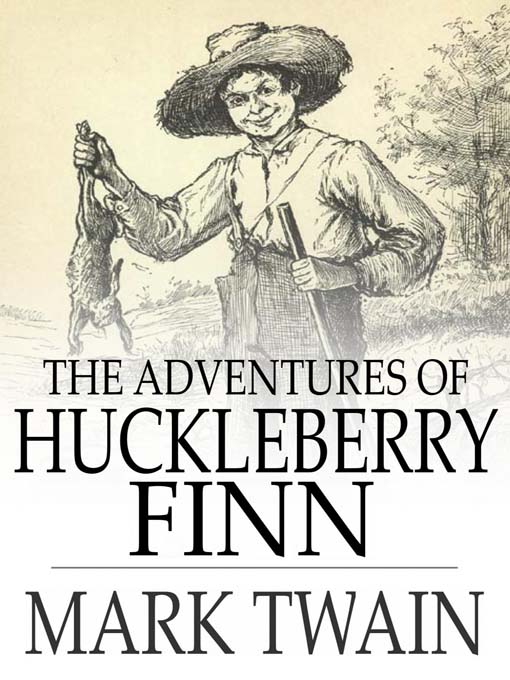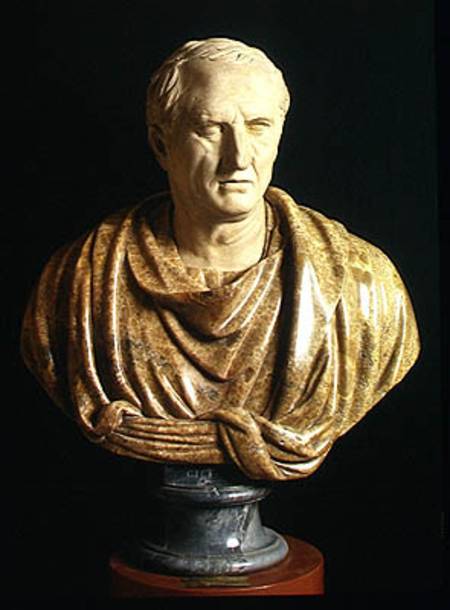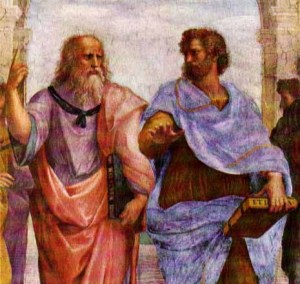"Defense spending is unlike other spending, because protecting the nation is government's first job. It's in the Constitution, as ... school lunches and Social Security are not. We should spend as much as needed...." ~Robert Samuelson
President Bush's response to 9/11 and the War in Iraq -- a Reassessment
See the Wall Street Journal forum here.
Obama's challenge
"Every re-election race — from city council to president — ultimately comes down to a simple question: Are you better off than you were (fill-in-the-blank) years ago? To win, the incumbent has to convince a majority of voters that the answer to that question is 'yes' (or that it will be 'yes' in the not-too-distant future). As of today [9/6/2011], according to new polling conducted by the Washington Post/ABC News, nearly nine in 10 adults say they are either 'about the same' (50 percent) or worse off (35 percent) financially than they were four years ago. Just 15 percent describe themselves as 'better off.' And that is a major problem for President Obama heading into his re-election race next fall.
"The president has argued — and will continue to make the case — that he inherited an economy on the verge of collapse and took a number of actions to simply keep the country’s finances afloat. Obama has acknowledged that the economic doldrums have lasted longer than anyone expected while also trying to convince the public that better times lie ahead.... But the Post/ABC poll suggests that Obama has his work cut out for him. Among electorally critical independents, more than one in three (36 percent) said they were in worse financial shape than four years ago — double the percentage who said they felt that they were in better shape. Even among his base of self-identified Democrats, the 'are you better off' numbers are far from encouraging for Obama; 17 percent said they were better off than four years ago while 18 percent said they were worse off and 65 percent said they were roughly in the same place financially. And, while Obama continues not to bear the brunt of the blame for the current state of the economy, the new Post/ABC poll suggests that people don’t believe his solutions are helping matters. Just 17 percent of adults said his economic programs were making things better, while double that amount — 34 percent — said he was making things worse. Another 46 percent said Obama’s policies had so far had little effect on the nation’s economy. ~Chris Cillizza and Aaron Blake
Critique of President Obama's stimulus in the Wall Street Journal here.
Downgrades?
Although the federal government's credit rating was downgraded, it's really DC politicians who should be downgraded.
Higher Education Bubble?
Michael Barone writes about the possible reckoning that is coming.
Gregory A. Petsko writes about the wrong way to cut university budgets.
Education Reform
John Stuart Mill's education reform, in On Liberty, would get results -- but no politician today has the guts to pursue it. Since students who neglect their studies are more likely to become a burden to the state than students who succeed, their families should make a down payment on the burden they will be to the community. To get underachieving students to shape up, we should tax the parents. Then the parents will crack the whip at home because they won't want to pay the extra taxes for their underachieving sons and daughters.
Party of Innovation, Party of Conservation
Ironically, both the left wing of the party of innovation and the right wing of the party of conservation are animated by perfection -- though in different ways. Both keenly feel the human condition's limitations. Nothing on this earth is perfect or permanent; all is changing, fluid, imperfect, and impermanent. In spite of imperfection, or perhaps because of it, both parties want their communities to find and refine lifeways that bring us nearer to perfection.
Innovators keenly feel how we fall short of the goal. Looking to the future, they seek betterment by challenging the community to progress. The mantra is, "We can do better." Wilson's domestic reforms, FDR's New Deal, Truman's Square Deal, Lyndon Johnson's Great Society, Obama's Hope and Change -- each of these reform movements was energized by the desire for large-scale, social betterment. Their constant challenge, however, is to remember (1) that defense spending is required by the Constitution in a way that welfare spending is not, (2) that their programs often hurt the people they were meant to help, as for example when welfare or unemployment payments are stretched out too long, and (3) that progressivism has undercut the achievement of the American founding by emphasizing the natural rights tradition -- what the community owes us -- at the expense of the civic republican tradition -- what we owe to the community.
Conservators keenly feel that we are losing something of value from our past. Looking to history, they seek betterment by retaining a remnant, or restoring something from our heritage that they regard as superior. It is no accident that the conservation movement (etymologically related to the "conservative" movement) arose during the Industrial Revolution to preserve America's splendid wilderness. Since World War II, conservatives have looked back on the American founding as a benchmark -- a time when the new republic was populated by a happier people because early Americans' pursuit of happiness effectively balanced duties and rights: the duties of civic republicanism (engendering an existentially meaningful life because of the emphasis on what the individual could contribute to the community) and natural rights (a politically secure life because of the emphasis on what the community owed the individual). Their constant challenge, however, is to remember (1) that the price mechanism of the free market does not always confer the value it should, (2) that corporate welfare has corrupted both government and business, and (3) that it is a scandal to have an underclass in this country.
The Political Necessity: Balancing Rights and Duties
A healthy polity achieves a good balance between rights and duties. Too much emphasis on duties, and citizens feel as if they are living in a totalitarian state. Too much emphasis on rights, and citizens may become indolent and self-indulgent. America's founders got it right.
Three Generations of Rights
Classical republics stressed duties over rights. Modern republics stress rights over duties. Today our notions of duty come from the civic republican tradition that originated in antiquity, while our notions of rights come from the natural rights tradition that originated in the Middle Ages. The genius of America's founding generation was to merge the civic republican tradition (duties) with the natural rights tradition (rights) and urge posterity to keep the two traditions in balance. Since World War II, our citizens have tended to quit reading our founding documents through the lens of the civic republican tradition (duties) and instead emphasize the natural rights tradition (rights).
Nowhere is the modern preoccupation with rights better exemplified than in the concept of "three generations of rights," elaborated by Czech jurist Karel Vasak. He used the French Revolution's motto, "Liberty, Equality, Fraternity," as the organizing principle for three generations of rights. The pursuit of happiness is a red thread that ties these rights together.
The first generation of rights, characterized by liberty in Vasak's scheme, is political in nature. Such rights were powerfully articulated by English jurists since the time of Magna Carta and especially by American revolutionaries, Federalists, and Anti-federalists in the 18th century. Political rights include the citizen's right to vote, due process, habeas corpus, a fair trial, free speech, peaceably assemble, petition government, and practice the religion of his or her choosing. Magna Carta, Virginia Declaration of Rights, Declaration of Independence, U.S. Constitution and its first Ten Amendments called the Bill of Rights, the UN Declaration of Human Rights -- these are the landmark documents that flesh out this first generation of rights.
The second generation of rights, characterized by equality in Vasak's scheme, is economic in nature. These rights were expressed by more radical factions of the French Revolution and then famously by President Franklin Roosevelt, who in his 1944 State of the Union address proposed a "Second Bill of Rights." Roosevelt believed that the political rights in the Constitution and Bill of Rights were inadequate to assure Americans "equality in the pursuit of happiness." FDR's remedy was to declare an economic bill of rights that would insure jobs that paid a living wage, freedom from unfair competition and monopolies, adequate housing, medical care, education, and social security.
The third generation of rights, characterized by fraternity in Vasak's scheme, is much more diffuse and difficult to characterize. They include such desireable goods as the right to participate in one's cultural heritage, inherit a clean environment, and practice intergenerational sustainability.
The notion of second and third generation rights is controversial. While second generation rights garner the support of most citizens, serious critiques have thrown their practicality into question. British political philosopher Maurice Cranston reminded us of a history lesson: political rights are not limited by the scarcity of resources. The decline in the supply of wheat does not limit your right to habeas corpus or free speech. Government can still protect your political rights when economic scarcity makes life difficult. But so-called economic rights are another matter. They must contend with the reality of limits. If a person has an economic right to, say, "decent housing" (FDR's words), and if government by definition is obligated to respect, protect, and fulfill that right when it is not fulfilled in the marketplace or in civil society, what happens if government cannot pay for it? What if health care is considered more primary than housing and it is all that a nation can afford? How is a right recognized much less protected when it cannot be fulfilled? In a world of scarcity, governments, like the rest of us, must prioritize. Lacking the resources necessary to fulfill all putative economic rights, government looks impotent. Something so well intentioned as human rights is made a mockery when there is no hope of attaining them. The reality is that such rights become negotiable -- and therefore arbitrary. If arbitrary, they are not "rights" at all.
Another critic is the American political philosopher Charles Kesler. He argues that second and third generation rights are not just noble statements; they also provide cover for a progressive political agenda. The majority of citizens may well agree that second and third generation rights are good things, but because every right invokes a duty, should other citizens be coerced by the government to provide them? Kesler also observes that, in the U.S., the promulgation of new rights creates a nationalization of political decision making that violates the spirit of federalism.
Also see Paul Rahe, Soft Despotism, Democracy’s Drift, which argues that pursuing equality-based rights can lead to the subordination of freedom-based rights. An ever-expanding government would violate justice since the goals of freedom are sometimes at odds with the goals of equality.
Some historians, like my mentor Stephen Tonsor, opine that the French Revolution was doomed to frustration from the start. Pursuing liberty often runs counter to pursuing equality, with the result that fraternity is certain to suffer.
| Before he was guillotined in the French Revolution, Robespierre declared, "Terror is only justice prompt, severe, and inflexible; it is then an emanation of virtue ... a natural consequence of the general principle of democracy, applied to the most pressing wants of the country.... The government in a revolution is the despotism of liberty against tyranny." |
National debt
I cannot verify the source of an apocryphal quotation attributed to Alexander Hamilton -- it's not in the Federalist Papers. The accumulation of debt, he supposedly wrote, is "the NATURAL DISEASE of all governments." In February 1790, when Hamilton was serving as our first Treasury secretary, the U.S. took out its first loan for $20,000. Hamilton and other founding fathers had no problem with the government occasionally borrowing money to pay for defense, justice, infrastructure, public education, and other commonly held goods. Some public debt, some of the time, is the price of liberty. Nor did they have a problem with taxes and bonds because some burdens had to be equitably shared (free rider problem). So the issue is not taxes or national debt, per se. The issue is the scale of our structural (as opposed to situational) debt. Today the national government is increasing its debt by $20,000 every 3/10 of a second. It now stands at $14.3 trillion -- almost on a par with the productive capacity of our entire economy.
Al-Qaida got its start opposing regimes in Islamic lands that made too many compromises of the first order with infidel foreign powers. They especially objected to the presence of foreign infidel troops on Islamic soil. This is why al-Qaida was anti-American and anti-Western from the get-go. To achieve their goal of establishing Islamic regimes that rebuffed the presence of infidel influence and troops on their soil, al Qaida called for violence and religious zealotry to overthrow the sell-outs. The Arab Spring, ironically, has left them out in the cold. Much of the energy heating up the Arab Spring is from indiginous, non-violent, secular movements in the Middle East.
112th Congress -- should counter the imperial presidency
 |
| The Old Right's champion, Sen. Robert A. Taft |
"Many congressional Republicans, and surely some Democrats with institutional pride, think Congress is being derogated and marginalized by two developments. One is the apotheosis of the presidency as the mainspring of the government and the custodian of the nation's soul. The second is the growing autonomy of the regulatory state, an apparatus responsive to presidents.
"The eclipse of Congress by the executive branch and other agencies is Congress's fault. It is the result of lazy legislating and lax oversight. Too many 'laws' actually are little more than pious sentiments endorsing social goals - environmental, educational, etc. -- the meanings of which are later defined by executive-branch rule-making. In creating faux laws, the national legislature often creates legislators in the executive branch, making a mockery of the separation of powers. And Congress makes a mockery of itself when the Federal Register, a compilation of the regulatory state's activities, is a more important guide to governance than the Congressional Record.
"Unfortunately, courts long ago made clear that they will not seriously inhibit Congress's scandalous delegation of its lawmaking function to others. So Congress should stop whining about the actions of the EPA (emissions controls), the FCC ('net neutrality'), the Interior Department (reclassifications of public lands) and other agencies and should start rereading Shakespeare: 'The fault, dear Brutus, is not in our stars, but in ourselves, that we are underlings.'
"Conservative senators passing through the Capitol reception room should ponder the portrait of Ohio's Robert Taft (d. 1953), who was conservatism when it stressed congressional supremacy." ~George F. Will, "A Congress that Reasserts Its Power," Washington Post, January 16, 2011 [at http://www.washingtonpost.com/wp-dyn/content/article/2011/01/14/AR2011011404663.html]
Conservatism
Fareed Zakaria: "Unlike the abstract theories of Marxism and socialism, [conservatism] started not from an imagined society but from the world as it actually exists. From Aristotle to Edmund Burke, the greatest conservative thinkers have said that to change societies, one must understand them, accept them as they are and help them evolve."
American conservatism has other important roots. Take an earlier conception of our form of government, noted by George Will. "... [P]onder the portrait of Ohio's Robert Taft (d. 1953), who was conservatism when it stressed congressional supremacy. America was born in recoil against an overbearing executive's 'repeated injuries and usurpations' (the Declaration of Independence); modern conservatism was born in reaction against executive aggrandizement, first by Franklin Roosevelt, then by his acolyte Lyndon Johnson.
"But beginning in 1968, Republicans won five of six and then seven of 10 presidential elections, and experienced rapture with Ronald Reagan. Then they lost their wholesome wariness of executive power. Today, conservatives should curl up with a good book by a founding editor of National Review - James Burnham's Congress and the American Tradition."
Conservatives and Republicans ... have a friend in Boulder, Colorado?
Celestial Seasoning's box of green tea has the logo of an elephant with the accompanying text: "Wisdom: Universally respected for his keep intelligence and remarkable memory, the elephant reminds us that experience is the foundation of wisdom."
Diversity
So many groups nowadays are "diverse" to the exclusion of all others, and they don't see the irony. Here is David Horowitz's way to test any group that claims to be diverse. If everybody in the group voted for one presidential candidate, then the group is not diverse.
Liberal ad hominems against conservatives
It is a truism that has lost none of its truth: When people do not deal with the content of an argument and use name calling and ad hominems against their opponents, it's a sign that they are losing the argument. When your attack against the ideas fails, then attack the people.
The United States of America -- a Democratic Empire
Reckless internationalism should not lead to the backlash of reckless isolationism. ~E. J. Dionne
David Hendrickson's wise words:
"Fifty years of struggle against totalitarian powers have given American foreign policy an outlook and set of maxims profoundly at odds with those that animated the founders of this nation. We have assumed traits against which they consciously rebelled; our distinctive raison d’état has been lost. To recover an appreciation of that original reason of state and to apply it creatively to the challenges of the present are the great tasks confronting contemporary American policymakers.
"It is obvious that such a foreign policy renovation must take account of the nation’s vastly changed circumstances; contemporary policy must address risks and opportunities unknown to the founders of the American state. But it is a great mistake to believe that their vision is irrelevant or that they failed to anticipate many of the dilemmas we face today. Even if ultimately rejected, their outlook reflected a certain belief about the significance of America in world history that became deeply embedded in the nation’s consciousness for 150 years. It reflected an understanding of when and why the nation might make war that was highly sophisticated in the way in which it accommodated the sometimes conflicting claims of American security and national purpose. It was based on an appreciation of the factors governing the rise and fall of republics and empires that is, in fact, quite relevant today. If we are now to abandon that outlook, we ought at least understand that we are doing so, and that we thereby risk a betrayal of the distinction America once coveted among the nations.
"The United States was established in conscious flight from European precedents. For the Founding Fathers, as well as for the generations that followed, the workings of the European state system gave rise to a predicament.... The founders recognized the sequence by which republics caught in the maelstrom of that system succumbed to war, debt and standing armies, and whose participation in the system thereby became the primordial cause of their corruption. With the breakdown of the Articles of Confederation and the impending division of the continent into rival regional confederacies, they feared that America would suffer that same fate."
In the above passage, David Hendrickson writes wisely of the rise of statism. Our statism grew out of a bankrupting 24/7 national security state and the imperial presidency that's evolved to administer it. But another, related catalyst of far-reaching change occurred after the Founding: the Industrial Revolution, which ushered in the greatest transformation of the human condition since the Agricultural Revolution of Neolithic times. In the U.S. industrialization (and the accompanying urbanization) were the great historic divides in our history that led to the progressive movement. The fact that the U.S. became the world's greatest industrial power by the turn of the last century helps us understand the 20th-century presidencies of TR, Woodrow Wilson, Franklin Roosevelt, Harry Truman, Lyndon Johnson, and Richard Nixon. In the perceived Hobbesian world of the free market -- a Darwinian jungle where only the fittest survive -- the national government was increasingly enlarged by skillful politicians as a protector of the democratic masses against Big Business and foreign threats of other industrializing powers. It was also a vote-getter. Who can make a dent in entitlements anymore, or the military-industrial establishment? The U.S. is ensconsed in its democratic empire.
Literature -- don't arrogantly bowdlerize
Should we ever arrogate to ourselves the power to cheat future generations of a great book's original power? "Literature that stands the test of time tends to be work that challenges and provokes and speaks in a distinctive voice. Part of that challenge and distinctiveness emerges out of contact with ideas and beliefs that are often strange and sometimes repugnant to us. The danger is that trying to make aspects of a particular work less strange and repugnant to us might imperil, and not enhance, its prospects for survival [and thus its ability to challenge and benefit future generations]." ~Charles Pazdernik, Grand Valley Lanthorn, January 24, 2011
"war on terror" -- legitimacy of the term when referring to militant jihadists
While attending the Colin Powell-Madeleine Albright event Monday evening (June 13, 2011), the Madame Secretary reiterated that it was a mistake for President George W. Bush to have defined America's conflict with militant jihadists as a "war on terror." She prefers to call militant jihadist attacks on U.S. servicemen and American citizens as "crimes."
Let's review some of the history to see if the past suggests whether we are at war or are merely fighting foreign criminals: Islamic radicals held U.S. embassy personnel in Tehran hostage for 444-days (1979-1981); Shiite suicide bombers killed 241 Marines at the U.S. military barracks at Beiruit airport (1983); Ramzi Yousef, Sheik Omar Abdel Rahman, and other militant jihadists killed 6 and injured 1,040 in the first World Trade Center attack (1993); Hezbollah killed 19 U.S. servicemen at the Khobar Towers (1996); al Qaida killed 224 and injured some 4,500 people in the U.S. embassy bombings in Kenya and Tanzania (1998); al Qaida killed 17 American sailors in Yemeni waters on the U.S.S. Cole (2000); al Qaida bombed the U.S. consulate in Karachi (2002); and 19 members of al Qaida coordinated three attacks on 9/11 that resulted in the loss of almost 3,000 lives, including at the nerve center of our military capability, the Pentagon (2001). There have also been numerous thwarted attacks, like the Qaida-trained "underwear bomber" from Nigeria on the flight into Detroit on Christmas Day (2009). If it's not war, then my historical training and common sense fail me entirely, and I have no idea what war is. It is important to name things rightly.















